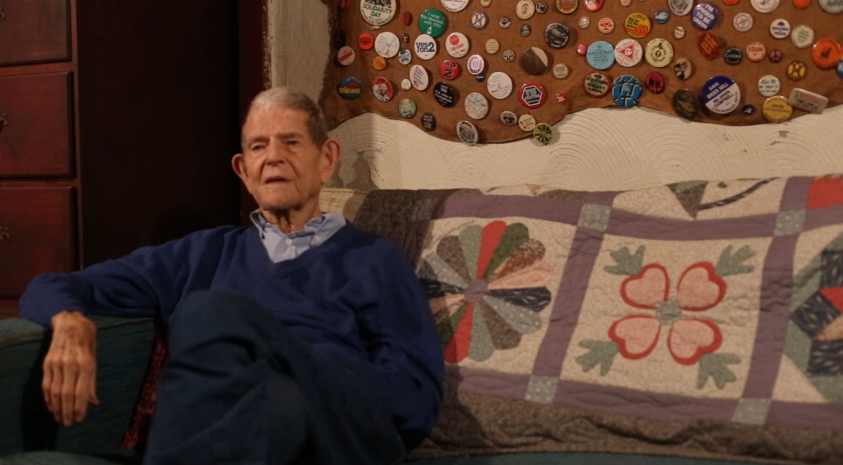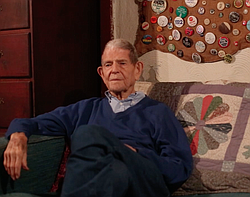Lawyer recalls effort to keep steel alive

By Kalea Hall
YOUNGSTOWN
Staughton Lynd recalls Black Monday

Staughton Lynd tells his story of trying to go after U.S. Steel to prevent them from shutting down.
When struck by a loss, family members turn to one another for support.
As the steel industry was being taken away from Youngstown, steelworkers and the community were ready to fight to save thousands of jobs.
VIDEO: Staughton Lynd recalls Black Monday
“A community was like a little family and when there was a major assault on the ability to provide, you didn’t [fall apart],” said Staughton Lynd, a labor lawyer during that time. “Instead, a family tended to draw together and you made it through,”
“People couldn’t imagine the mills closing,” Lynd added. “Despite the fact that there had been concern, it’s also a fact that it took people by surprise.”
Still, the biggest surprise awaiting the Mahoning Valley was the realization that efforts to save its steel future were futile.
FIRST STEPS
A group of religious leaders was among the first to take action.
The group became known as the Ecumenical Coalition. Its goal was to replenish jobs through a worker/community-run Youngstown Sheet & Tube Campbell Works.
Lynd, now 87, is a New Yorker who came to the Mahoning Valley in 1976 after he received his law degree at the University of Chicago and got into labor law.
“It was my way of relating to the rank and file labor movement,” Lynd said.
While the Youngstown area had an automobile industry and other plants here, “this really was a one-industry town,” Lynd said, noting the dominance of the steel mills.
Workers knew the open-hearth furnace used at local mills was outdated. Other mills had already replaced those furnaces with new technology.
But the worker/community coalition didn’t receive federal loan guarantees needed to reopen Campbell Works.
“In order to modernize the steel-making end of the Youngstown facilities, it would cost more than $200 million,” Lynd said.
STEEL INTENTIONS
After Youngstown Sheet & Tube’s president, Jennings R. Lambeth, announced on Black Monday the company would lay off thousands of steelworkers as it ended basic steel operations, U.S. Steel reaffirmed that the company had no intention to shut down its huge steel operations in Youngstown and McDonald, according to Vindicator files.
Two years later, in November 1979, U.S. Steel officially informed employees both the Ohio and McDonald works would close, affecting 3,600 employees.
The Vindicator had run several stories about the loss of the steel jobs, but one story in particular pointed out how the steelworkers thought they had an agreement with U.S. Steel Corp.
That agreement was that as long as Ohio and McDonald Works remained profitable, they wouldn’t be shut down.
It was that news story that led Lynd’s coworker at the Northeastern Ohio Legal Services office, to say that if the company made this declaration and the union made concessions, the union had a legitimate argument to file a lawsuit and fight to keep U.S. Steel from shuttering.
The lawsuit was filed in late 1979.
“To be absolutely honest with you, I thought the theory was solid,” Lynd said. “It depended on the fact that U.S. steel was making a profit.”
A month before the closure announcement, U.S. Steel’s local operation had reported a slight loss, Lynd said.
“The year as a whole did not show a loss,” he said.
FIGHTING TO STAY OPEN
The steelworkers had meetings and much was said about fighting back against U.S. Steel, but the steelworkers were done with all the rhetoric.
In January 1980, the steelworkers marched from their union hall down the hill to the U.S. Steel administration building and had a multi-hour occupation there in hopes their fate would change.
U.S. Steel called the head of the steelworkers union, Bob Vasquez, president of the USW Local 1330, and said the corporation would discuss selling the operation to a worker/community group. But after the occupation ended Vasquez was told U.S. Steel wouldn’t, in fact, discuss the sale.
William H. Kirwan, U.S. Steel’s Youngstown superintendent, David M. Roderick, chairman of the board of directors and chief executive officer of U.S. Steel, and Vasquez all testified in a one-week trial that took place at the downtown Youngstown federal courthouse in March 1980.
Roderick had made televised statements that the corporation would keep the Valley operations going if the profit remained, and Kirwan made the same remark over the intercom at U.S. Steel Ohio Works, Lynd said.
In court, Vasquez discussed the concessions the union made because of the promise to remain open if profitability continued.
In the end, the steelworkers lost their fight.
“We put up a hell of a fight. The judge said he was very sympathetic, but he knew of no precedent for a court ordering a private corporation to continue in business,” Lynd said.
“We understood that making steel in open hearths was no longer competitive and it had to be replaced, but the point of view of the steelworkers and myself is, U.S. Steel had been making a profit [here] and what was done with that profit?”
 43
43
